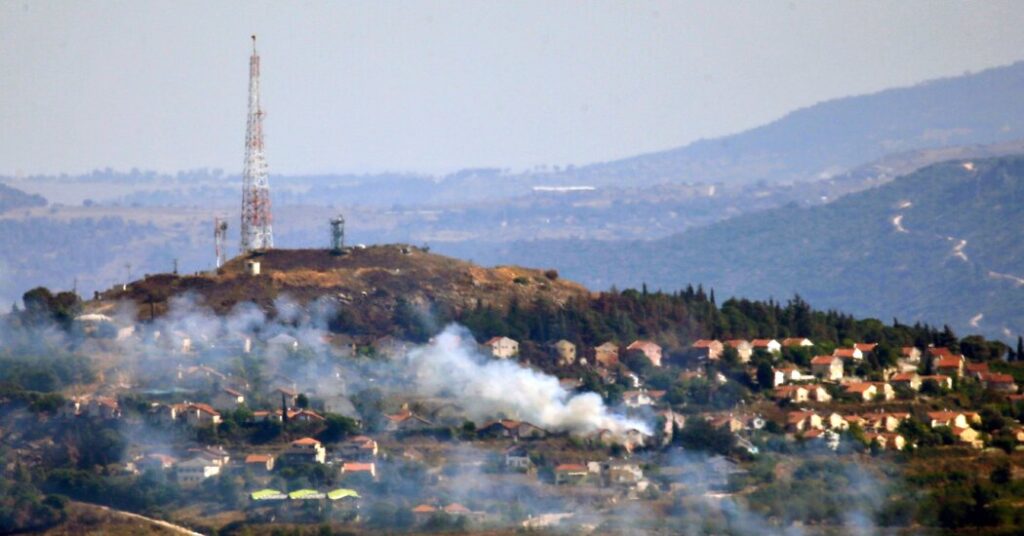Top White House officials plan to meet with French officials in Paris on Wednesday to discuss how to defuse escalating border firefights between Israel and Lebanese Hezbollah militants, a conflict that Secretary of State Antony Blinken said this week was leading to Israel’s failure to claim sovereignty over its north.
The visit by Amos Hochstein, the president’s special coordinator for global energy and infrastructure, was confirmed by a person familiar with the negotiations who requested anonymity to discuss a sensitive diplomatic matter.
Mr. Hochstein has emerged as President Joe Biden’s de facto envoy as he seeks to resolve the border conflict. He will meet with President Macron’s special envoy to Lebanon, Jean-Yves Le Drian, and Macron’s senior adviser Anne-Claire Legendre, according to another person familiar with the matter.
After World War I, Lebanon became a French protectorate; France still had some influence there and made proposals to stop the fighting. The White House had no immediate comment on Hochstein’s visit.
U.S. officials have been trying for months to prevent a war between Israel and Hezbollah, which is backed by Iran and has launched rocket attacks into northern Israel in solidarity with Hamas. and provoked the current war when it attacked Israel in October.
Concerns of an all-out war between Israel and Hezbollah have grown in recent weeks as cross-border fighting has intensified. Israeli officials have openly expressed a desire to shift military focus from Hamas to Hezbollah, a more advanced and powerful military threat.
Firas Maksad, senior fellow at the Middle East Institute in Washington wrote on social media There is still time for key players to find a diplomatic solution. “The diplomatic window is closing, but it’s not closed,” he said.
Speaking on Monday at the Brookings Institution, a nonpartisan think tank in Washington, Blinken said Israel had “effectively lost sovereignty” near the Lebanese border as Hezbollah attacks from across the border forced many people to flee their homes. Some 60,000 Israelis have fled the area, many of whom have been living in Tel Aviv hotels for nine months. Fighting has also displaced tens of thousands of people in southern Lebanon.
Blinken said he did not believe the main players in the border conflict – Israel, Hezbollah and Iran – really wanted to start a war, but noted that this was what the “momentum” of the conflict could lead to. U.S. officials worry that such a conflict could force the United States to support Israel.
“No one really wants a war,” Mr. Blinken said. He said Israel’s old enemy Iran “wants to ensure that Hezbollah is not destroyed and, if necessary, can use Hezbollah as a card if it comes into direct conflict with Israel.”
“If steps are not taken to address insecurity, people will not have the confidence to go back,” Mr. Blinken said. He added that resolving the issue would require an agreement to withdraw troops from the border.
Blinken noted that Hezbollah has said it will stop firing on Israel if a ceasefire is reached in Gaza. He said this “underscores why the ceasefire in Gaza is so important”. But the latest round of talks between Israel and Hamas appears to have reached an impasse.
Mr. Hochstein has met in recent weeks with Israeli and Lebanese officials who could relay a message to Hezbollah in an effort to negotiate a retreat far enough from the border to meet Israeli demands. In return, analysts say, Israel may withdraw its troops from some disputed border areas, while the United States may provide economic aid to southern Lebanon.
Euan Ward Contributed reporting.

